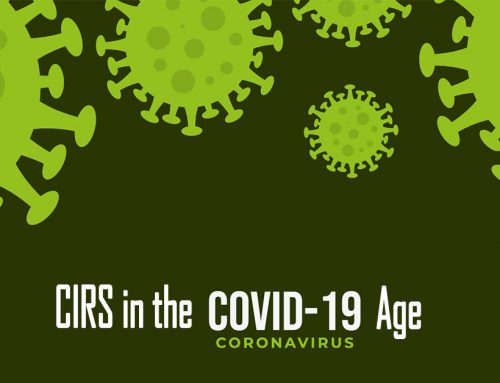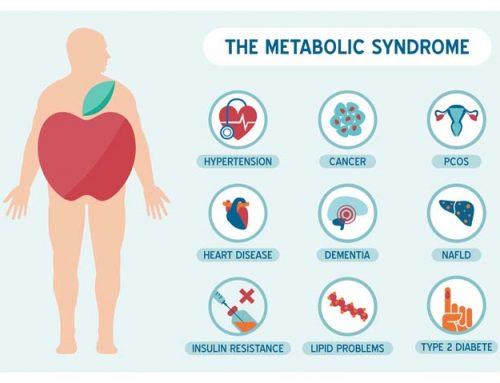Comments from Sandeep Gupta:
I first experienced the fact that many patients who were not diagnosed as having Coeliac disease still appeared to experience significant improvement in their condition with excluding gluten-based grains from their diet many years ago. At the time, the literature on this phenomenon was a little lacking. It’s encouraging to see that more studies are coming out to fill in some of the gaps in knowledge. In this article, nutritionist Blake Graham discusses the recent studies on gluten and health.
A recent case-control study examined the question of whether levels of gluten intake in early life affected risk of celiac disease onset in genetically susceptible children. This study assessed gluten intake at ages 9, 12, 18 and 24 months. Findings indicated those in the upper third of gluten intake had a significantly higher rate, at least two fold, of coeliac disease onset[1]. This study suggests in genetically susceptible children, higher gluten intake in early life is associated with higher rates of celiac disease. Until more research is done it would seem prudent to moderate gluten intake in genetically susceptible children in the first two years of life. Genetic susceptibility can easily be assessed via a blood test for HLA Coeliac gene studies looking for a DQ2 or DQ8 haplotype. Whether this means that adult patients with a genetic predisposition are better off to exclude gluten, it is not clear.
For years controversy has existed surrounding the condition known as non-coeliac gluten sensitivity (NCGS). This is a condition in which people react to gluten but do not meet the criteria for celiac disease. Some have doubted the existence of NCGS. The authors of a widely circulated Australian study in 2013[2] sparked much heated debate suggesting NCGS likely does not exist. However this study has significant limitations, including only sampling of a narrow group of patients; those meeting the diagnostic criteria for irritable bowel syndrome (IBS), and focusing on intestinal symptoms rather than a broad range of intestinal and non-intestinal symptoms. A more recent and broad study enrolled a group of people who believed they have NCGS and symptoms following even low doses of gluten.[3] They were given a gluten free diet for a week and then randomized into groups either receiving gluten or rice starch in capsules. The group receiving gluten capsules had significantly higher rates of abdominal bloating, abdominal pain, foggy mind, depression and mouth ulcers. This tends to strongly support the idea that NCGS is a real clinical entity, although more research will clarify the issue.
Connective tissue disorders such as systemic lupus erythematosus (SLE), systemic sclerosis and Sjögren’s syndrome have been considered commonly associated with gluten sensitivity in the functional medicine community for some time. A recent Italian study found a high incidence of celiac disease in this population.[4] Some had no intestinal symptoms. Fatigue and myalgia quickly reduced after gluten elimination. All patients with connective tissue disorders should be tested for celiac disease and also tested for NCGS via elimination/provocation. Well known functional medicine pioneer Dr. Leo Galland reported years ago almost 100% of his Sjögren’s syndrome patients had some form of gluten reactivity.[5]
A number of studies have helped more clearly elucidate the mechanism by which gluten can damage the intestinal lining in susceptible individuals.[6] In gluten sensitive people gluten molecules first bind to specific receptors called CXCR3 which then triggers the release of zonulin. Zonulin opens up the spaces between cells to allow more fluids to be flushed into the intestines to flush out the perceived toxins. This increased intestinal permeability then leads to chronic inflammation and auto-immunity. Although this mechanism is probably protective in the case of bacteria such as cholera, in the case of gluten exposure, it appears to set up chronic intestinal inflammation. Blood tests for zonulin are now available through certain specialty functional medicine laboratories.
Clinicians such as Shoemaker have observed a connection between non-Coeliac gluten intolerance and low levels of regulatory hormones such as Melanocyte Stimulating Hormone. This is an area that deserves further research. More on this topic soon.
And finally a recent animal study showed that gluten may contribute to weight gain in those on a standard or high fat diet, by reducing thermogenesis of fat cells. [7]
Blake Graham
Closing comments from Dr Gupta:
Fascinating information. I do believe it is very important for patients to be properly checked for coeliac disease by a doctor before ceasing gluten grains of their own volition, as Coeliac disease calls for a very strict gluten free diet, and also has a risk of small bowel lymphoma that needs to be screened for regularly. So there is a real difference between Coeliac and non-Coeliac gluten intolerance and it pays to know it.
References:
[1] Andrén Aronsson C et al. Effects of Gluten Intake on Risk of Celiac Disease: A Case-Control Study on a Swedish Birth Cohort. Clin Gastroenterol Hepatol. 2016 Mar;14(3):403-409.e3.
[2] Biesiekierski JR et al. No effects of gluten in patients with self-reported non-celiac gluten sensitivity after dietary reduction of fermentable, poorly absorbed, short-chain carbohydrates. Gastroenterology. 2013 Aug;145(2):320-8.
[3] Di Sabatino A et al. Small Amounts of Gluten in Subjects With Suspected Nonceliac Gluten Sensitivity: A Randomized, Double-Blind, Placebo-Controlled, Cross-Over Trial. Clin Gastroenterol Hepatol. 2015 Sep;13(9):1604-12.
[4] Conti V et al. High prevalence of gluten sensitivity in a cohort of patients with undifferentiated connective tissue disease. Eur Ann Allergy Clin Immunol. 2015 Mar;47(2):54-7.
[5] Leo Galland. Gastrointestinal Dysregulation: Connections to Chronic Disease (Functional Medicine Clinical Monograph). 2008
[6] Joseph Pizzorno. Zonulin! The Wheat Conundrum Solved (Well, Mostly …). Integrative Medicine • Vol. 12, No. 4 • August 2013.
[7] Freire, RH et al. Wheat gluten intake increases weight gain and adiposity associated with reduced thermogenesis and energy expenditure in an animal model of obesity. Int J Obes (Lond). 2016 Mar;40(3):479-86.








Leave A Comment